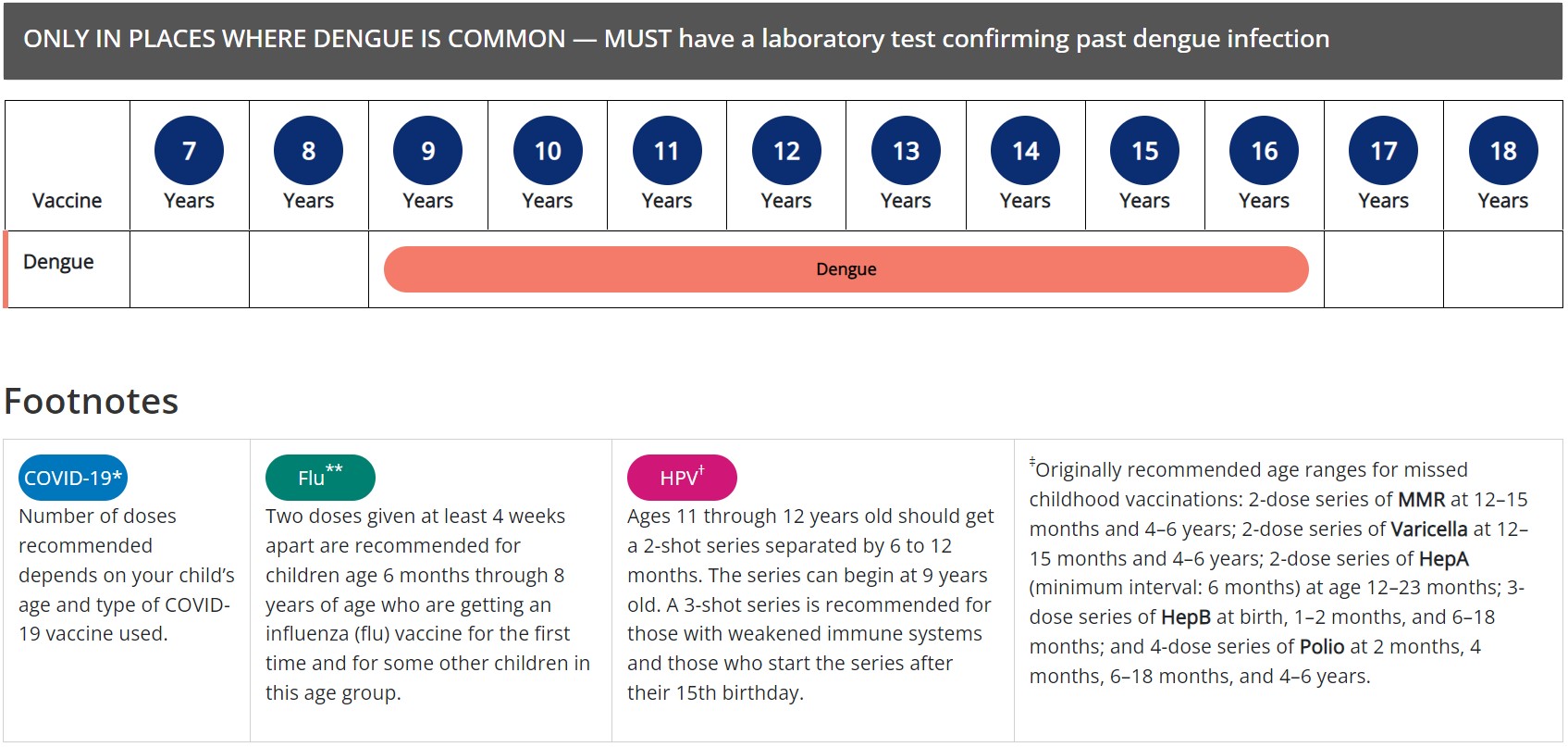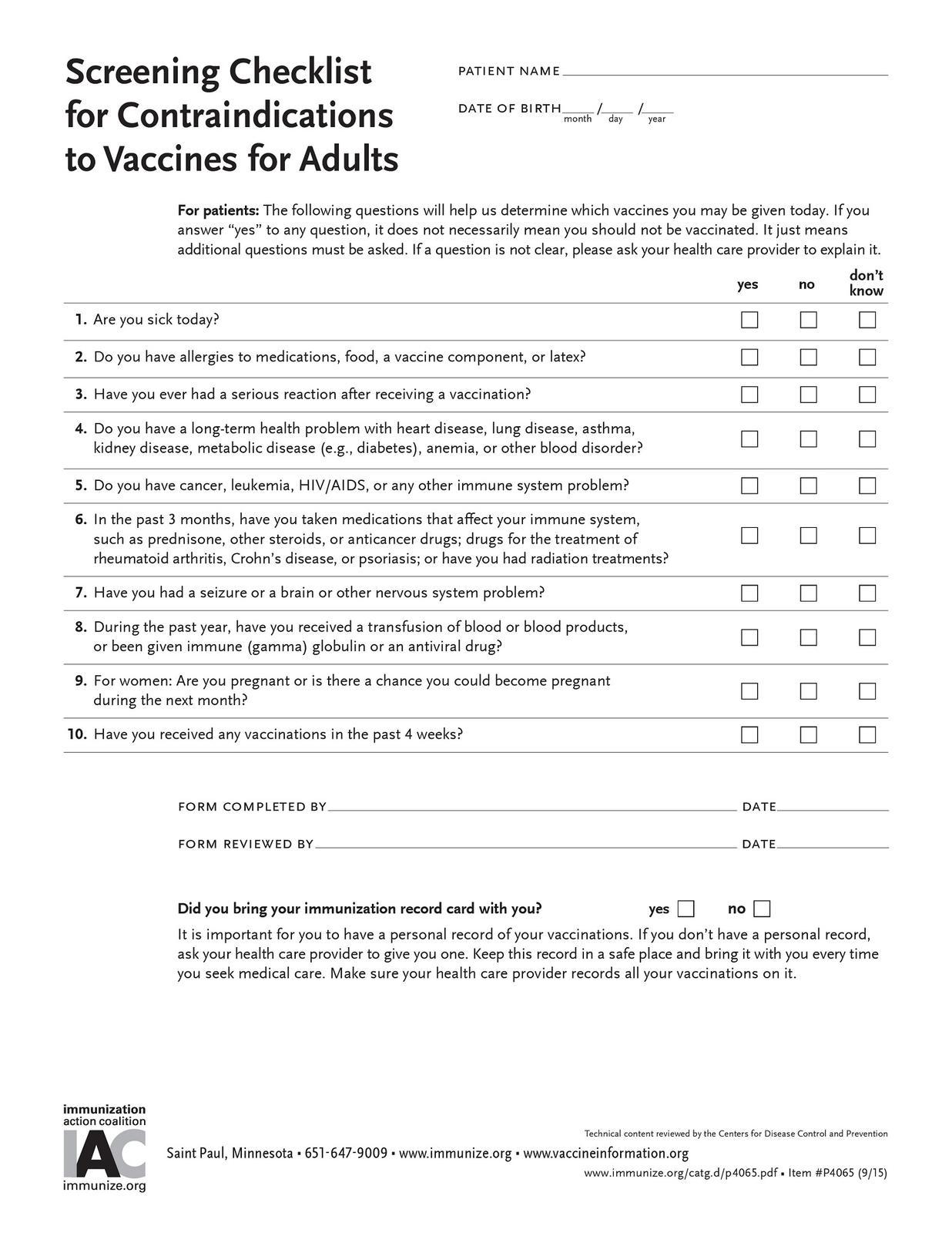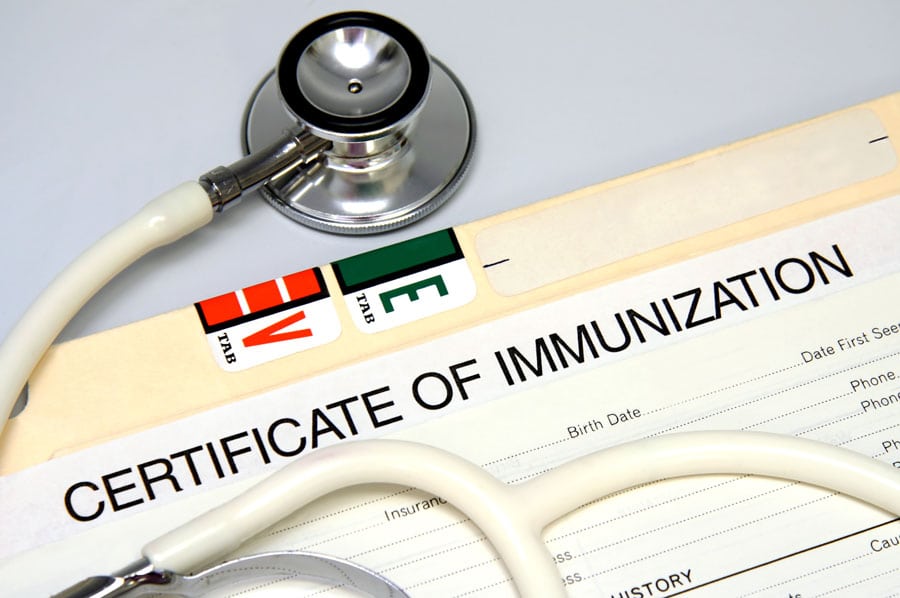Immunizations play a critical role in safeguarding public health and preventing the spread of infectious diseases. They are one of the most significant advancements in modern medicine, saving millions of lives annually. Whether you're a parent, healthcare professional, or someone looking to enhance your understanding of vaccines, this guide provides everything you need to know about immunizations.
In a world where misinformation about vaccines spreads rapidly, it's essential to have access to accurate, evidence-based information. Understanding the science behind immunizations, their benefits, and potential side effects empowers individuals to make informed decisions about their health and the health of their loved ones.
This article will delve into the importance of immunizations, how they work, the different types available, and the recommended vaccination schedules for various age groups. Additionally, we'll address common misconceptions and provide resources to help you stay up-to-date with the latest developments in vaccine science.
Read also:Andrew Caldwell The Visionary Engineer Behind Teslarsquos Success
Table of Contents
- What Are Immunizations?
- How Immunizations Work
- Types of Immunizations
- Vaccination Schedules
- Benefits of Immunizations
- Common Side Effects of Immunizations
- Misconceptions About Vaccines
- Importance of Vaccination
- Global Efforts in Immunization
- Conclusion
What Are Immunizations?
Immunizations, commonly referred to as vaccines, are biological preparations that enhance the body's natural immune response to specific diseases. These preparations are designed to stimulate the immune system without causing the actual illness, thereby providing protection against future infections.
Through immunizations, individuals can develop immunity to diseases such as measles, polio, influenza, and more. This process significantly reduces the risk of outbreaks and contributes to the overall health of communities worldwide.
Key Components of Immunizations
- Antigens: Substances that trigger an immune response.
- Adjuvants: Ingredients that enhance the immune system's response to the vaccine.
- Preservatives: Substances used to maintain vaccine stability and safety.
Understanding the components of immunizations is crucial for appreciating their effectiveness and safety. Each element plays a specific role in ensuring the vaccine works as intended.
How Immunizations Work
When a person receives an immunization, their immune system is exposed to a weakened or inactivated form of the pathogen responsible for a particular disease. This exposure allows the body to recognize and combat the pathogen if encountered in the future.
Steps in the Immune Response
- Recognition: The immune system identifies the antigens present in the vaccine.
- Activation: Immune cells are activated and begin producing antibodies specific to the pathogen.
- Memory: The immune system retains a "memory" of the pathogen, enabling a faster response upon future exposure.
This process ensures that the body is prepared to fight off infections quickly and effectively, reducing the likelihood of severe illness or complications.
Types of Immunizations
There are several types of vaccines, each designed to target specific diseases and populations. Understanding the differences between these vaccines can help individuals make informed decisions about their healthcare.
Read also:Olans Prenatt A Comprehensive Guide To The Rising Star
Common Types of Vaccines
- Inactivated Vaccines: Contain dead pathogens and are used for diseases like polio and hepatitis A.
- Live-Attenuated Vaccines: Contain weakened pathogens and are effective against measles, mumps, and rubella.
- Subunit, Recombinant, and Conjugate Vaccines: Focus on specific parts of the pathogen and are used for diseases such as whooping cough and human papillomavirus (HPV).
- Messenger RNA (mRNA) Vaccines: Provide instructions for cells to produce antigens, as seen in the COVID-19 vaccines.
Each type of vaccine has unique advantages and considerations, making it essential to consult healthcare professionals for personalized recommendations.
Vaccination Schedules
Vaccination schedules outline the recommended timeline for receiving specific vaccines. These schedules are developed based on extensive research and are designed to maximize protection while minimizing risks.
Recommended Vaccination Schedules
- Infants and Children: Vaccines for measles, mumps, rubella, and more are administered during early childhood.
- Adolescents: Vaccines for HPV and meningococcal disease are typically given during the teenage years.
- Adults: Boosters for tetanus and flu vaccines are recommended throughout adulthood.
Staying up-to-date with vaccination schedules is critical for maintaining individual and community health. Consult your healthcare provider for personalized guidance.
Benefits of Immunizations
The benefits of immunizations extend beyond individual protection, contributing to the broader health of communities and societies. By reducing the incidence of infectious diseases, vaccines save lives, reduce healthcare costs, and improve quality of life.
Key Benefits of Immunizations
- Prevention of Disease: Vaccines prevent the spread of infectious diseases, protecting both individuals and populations.
- Economic Savings: Vaccination reduces healthcare costs associated with treating preventable diseases.
- Herd Immunity: When a significant portion of a population is vaccinated, it indirectly protects those who cannot be vaccinated due to medical reasons.
These benefits underscore the importance of immunizations in promoting public health and well-being.
Common Side Effects of Immunizations
While immunizations are generally safe and effective, some individuals may experience mild side effects. These side effects are typically short-lived and far outweigh the risks of contracting the diseases they prevent.
Potential Side Effects
- Local Reactions: Soreness or redness at the injection site.
- Mild Symptoms: Fever, fatigue, or headache.
- Rare Reactions: Allergic reactions, though extremely uncommon.
If you experience severe or persistent side effects, consult a healthcare professional immediately. Understanding the potential side effects can help alleviate concerns and encourage vaccine acceptance.
Misconceptions About Vaccines
Misinformation about vaccines can lead to hesitancy and reduced vaccination rates. Addressing common misconceptions is essential for promoting vaccine confidence and protecting public health.
Common Misconceptions
- Vaccines Cause Autism: Extensive research has debunked this claim, showing no link between vaccines and autism.
- Vaccines Are Unsafe: Vaccines undergo rigorous testing and monitoring to ensure their safety and efficacy.
- Natural Immunity Is Better: Contracting a disease naturally can lead to severe complications, whereas vaccines provide safe immunity.
By addressing these misconceptions with evidence-based information, we can empower individuals to make informed decisions about their health.
Importance of Vaccination
Vaccination remains one of the most effective public health interventions available. It not only protects individuals but also contributes to the overall health and safety of communities.
Why Vaccination Matters
- Preventing Outbreaks: Vaccination reduces the spread of infectious diseases, preventing outbreaks and epidemics.
- Protecting Vulnerable Populations: Vaccines safeguard those who cannot be vaccinated due to medical conditions.
- Global Health Impact: Vaccination efforts have led to the eradication of diseases like smallpox and the near-eradication of polio.
Continued support for vaccination programs is vital for maintaining these achievements and addressing emerging health challenges.
Global Efforts in Immunization
International organizations and governments worldwide are committed to expanding access to immunizations. Initiatives such as Gavi, the Vaccine Alliance, and UNICEF play critical roles in ensuring that vaccines reach even the most remote and underserved populations.
Global Immunization Initiatives
- Gavi: Works to increase access to vaccines in low-income countries.
- WHO: Provides guidelines and support for national immunization programs.
- UNICEF: Delivers vaccines to children in need, focusing on equity and accessibility.
These efforts demonstrate the global commitment to achieving universal access to immunizations and improving health outcomes worldwide.
Conclusion
Immunizations are a cornerstone of modern healthcare, providing protection against a wide range of infectious diseases. By understanding how vaccines work, the different types available, and their benefits, individuals can make informed decisions about their health and the health of their communities.
We encourage you to share this article with others and engage in conversations about the importance of vaccination. Together, we can promote vaccine confidence and work towards a healthier future for all. For more information, consult trusted sources such as the World Health Organization (WHO) and the Centers for Disease Control and Prevention (CDC).
Remember, staying informed and up-to-date with your vaccinations is one of the best ways to protect yourself and those around you. Take action today and contribute to a safer, healthier world!


